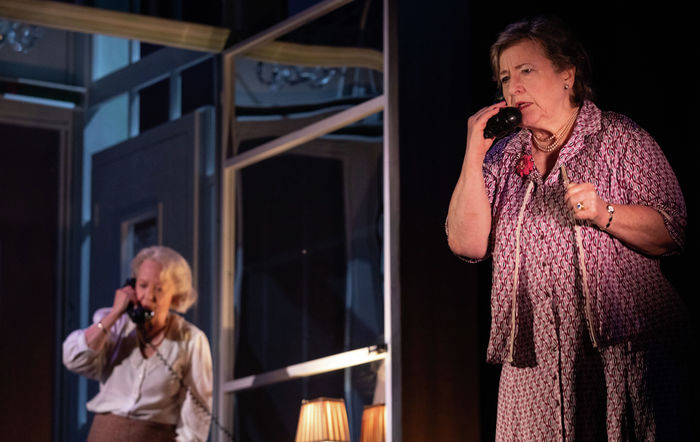‘Let Them Eat Cake!’: Marie Antoinette will not leave audiences hungry
This take on the French Revolution figure as a modern day nepo-baby is both amusing and absurd in its examination of the culture of privilege

Marie Antoinette’s ambitious publicity attempted to convince observers that this show would offer something new, that their version of Marie differs from the infamous historical figure. The play is indeed successful in transporting Marie to a world that is a collision between 18th Century Versailles and the modern day — making for a production that deftly examined multiple themes through an original contemporary lens.
As soon as I was seated, it was clear that the design of the show would deliver in terms of aesthetic; the choice to decorate the stage as a kind of modern imagining of Marie’s bedroom was clever. As an audience member, I got the sense that one was supposed to feel almost like a voyeur to Marie’s existence as her private room is left completely exposed, just as she is constantly under the public eye.
“Marie Antoinette is an enjoyable exploration into a perspective of privilege”
David Adjimi’s play follows the events of the French Revolution with Marie at its centre as she complains endlessly about her position, failing to understand a world beyond herself. Just as her character is supposed to, Victoria Ubenyi’s Marie dominated the stage in every scene with her conceited tone and self-important mannerisms. Ubenyi portrayed the entitled ignorance of her character believably, whilst also delivering real emotional intensity when it was necessary, a power that was really demonstrated in the final scenes, showcasing Marie’s increasing delusion with the loss of her material world.
Rosalind Wippell’s performance as the inept King Louis XVI was also both entertaining and convincingly pathetic, yet there was real chemistry between the two as the revolution reached its height. Opening night jitters led to some missed cues and tentatively delivered lines, but this initial awkwardness quickly gave way to confidence; the performances found their strength as the play progressed.
The lighting and stage were effective in creating an aesthetic experience that transported the audience into Marie’s reality; purple hues felt intimate and dreamlike, whilst the set plastered with magazine covers allowed Marie to be linked to our contemporary world of media fame. With pop as transitional music and Melania Hamilton’s costume design incorporating elements of regality into contemporary style, the influence of Sofia Coppola’s film of the same name was clear, placing Marie as both a figure of the past and a product of the 21st century. Some transitions, however, were a little messy. The start of the play, where lights were turned on and off to reveal snippets of a scene felt not entirely worthwhile to sit through.
“You can’t understand it, I was born to be the queen”, declares Marie in the second act — at this point in the play, it becomes impossible to ignore the effect of contemporary discussions surrounding celebrity culture on an audience’s perception of Marie. Marie’s performance is reminiscent of any 2000s chick flick mean girl and the infamous “nepo-baby” that reaps the benefits of fame and fortune with little to no effort. Her ignorance is annoying and at times repulsive, but her frustration at an absence of privacy feels genuine; like all celebrities, “fame” for her is a double edged sword. Marie describes herself as a “thing,” and whilst this is exactly what she has become, Ubenyi also ensures she remains a person.
Although at times the jumpy chronology of the play was difficult to follow, and the opening scenes lacked chemistry, the play was funny — particularly with the absurd and unexpected arrival of Katya Stylianou as a French speaking sheep. Through the play’s contemporary lens, the audience is forced to question the way we view public figures; when someone like Marie neither earned nor chose her position, should she really be punished for it?
Regardless of one’s answer, Marie Antoinette is an enjoyable exploration into a perspective of privilege, and there is definitely no better time, or place for that matter, to stage such a play.
 Music / The pipes are calling: the life of a Cambridge Organ Scholar25 April 2025
Music / The pipes are calling: the life of a Cambridge Organ Scholar25 April 2025 Arts / Plays and playing truant: Stephen Fry’s Cambridge25 April 2025
Arts / Plays and playing truant: Stephen Fry’s Cambridge25 April 2025 Comment / Cambridge builds up the housing crisis25 April 2025
Comment / Cambridge builds up the housing crisis25 April 2025 Interviews / Dr Ally Louks on going viral for all the wrong reasons25 April 2025
Interviews / Dr Ally Louks on going viral for all the wrong reasons25 April 2025 News / Candidates clash over Chancellorship25 April 2025
News / Candidates clash over Chancellorship25 April 2025






